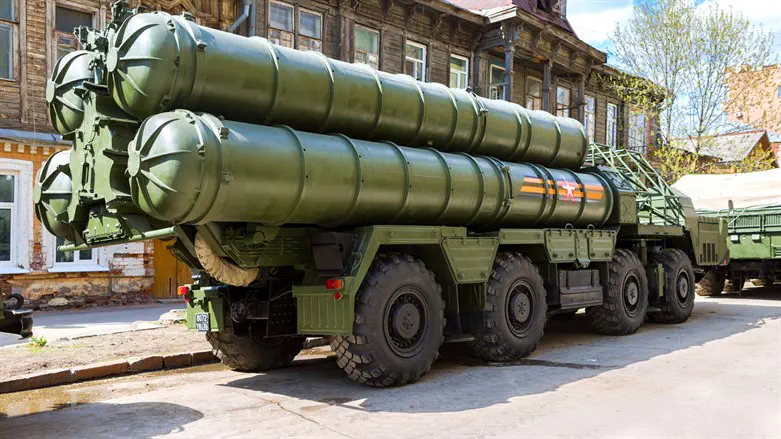
Iran deployed Russian-made long-range air defense systems during a military exercise on Wednesday, months after Israeli air strikes in October that Israel said had significantly weakened Tehran's defensive capabilities, Reuters reported.
Iranian state television reported that, during the exercise, Iran’s domestically built Bavar-373 air defense system and the Russian-made S-300 successfully intercepted a simulated enemy target.
"Some enemy officials and media outlets, after the malicious attack in October, had claimed that they had rendered Iran's long-range air defense systems non-operational," Iranian state TV stated.
The drill took place one day after Prime Minister Benjamin Netanyahu met with US President Donald Trump to discuss regional security concerns, including Iran's nuclear program.
Both leaders reiterated that Iran must not be allowed to develop nuclear weapons, with Trump announcing the renewed implementation of his "maximum pressure" campaign—aimed at cutting Iran’s oil exports to zero to prevent it from acquiring a nuclear weapon.
Iran in recent weeks has touted several military accomplishments. These unveilings coincide with large-scale military exercises by the Iranian army and the Islamic Revolutionary Guard Corps, which are set to run until mid-March. These drills are focused on safeguarding critical nuclear facilities, including Natanz, Fordow, and Khondab.
On Sunday, Iran unveiled a new ballistic missile, claiming it has a range of 1,700 kilometers.
The missile, named Etemad—meaning "trust" in Persian—was showcased at a ceremony in Tehran attended by President Masoud Pezeshkian.
The unveiling came just one day after Iran’s Revolutionary Guards Navy revealed a new underground missile facility along the country’s southern coast.
The facility, whose exact location was not disclosed, houses missile systems stored "hundreds of meters underground" and capable of being deployed swiftly, claimed Iranian media.
The latest military exercises align with the recent inauguration of Trump and heightened scrutiny of Iran's nuclear program due to increased uranium enrichment activities.
During Trump's first term, the US withdrew from the 2015 nuclear deal between Iran and world powers. In response, Iran has taken many steps to scale back its compliance with the 2015 agreement.
These steps include banning UN nuclear inspectors from the country as well as expanding uranium enrichment capabilities.
